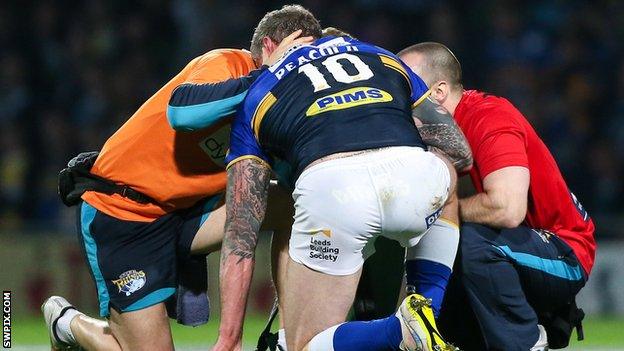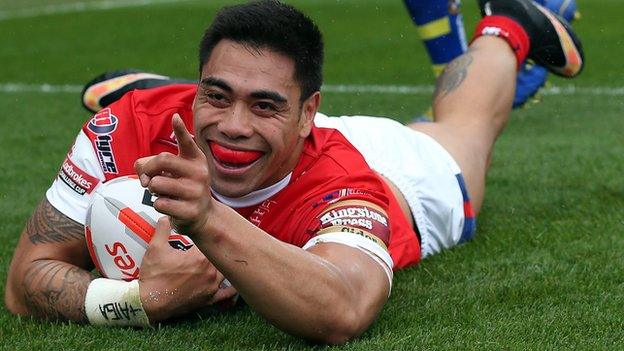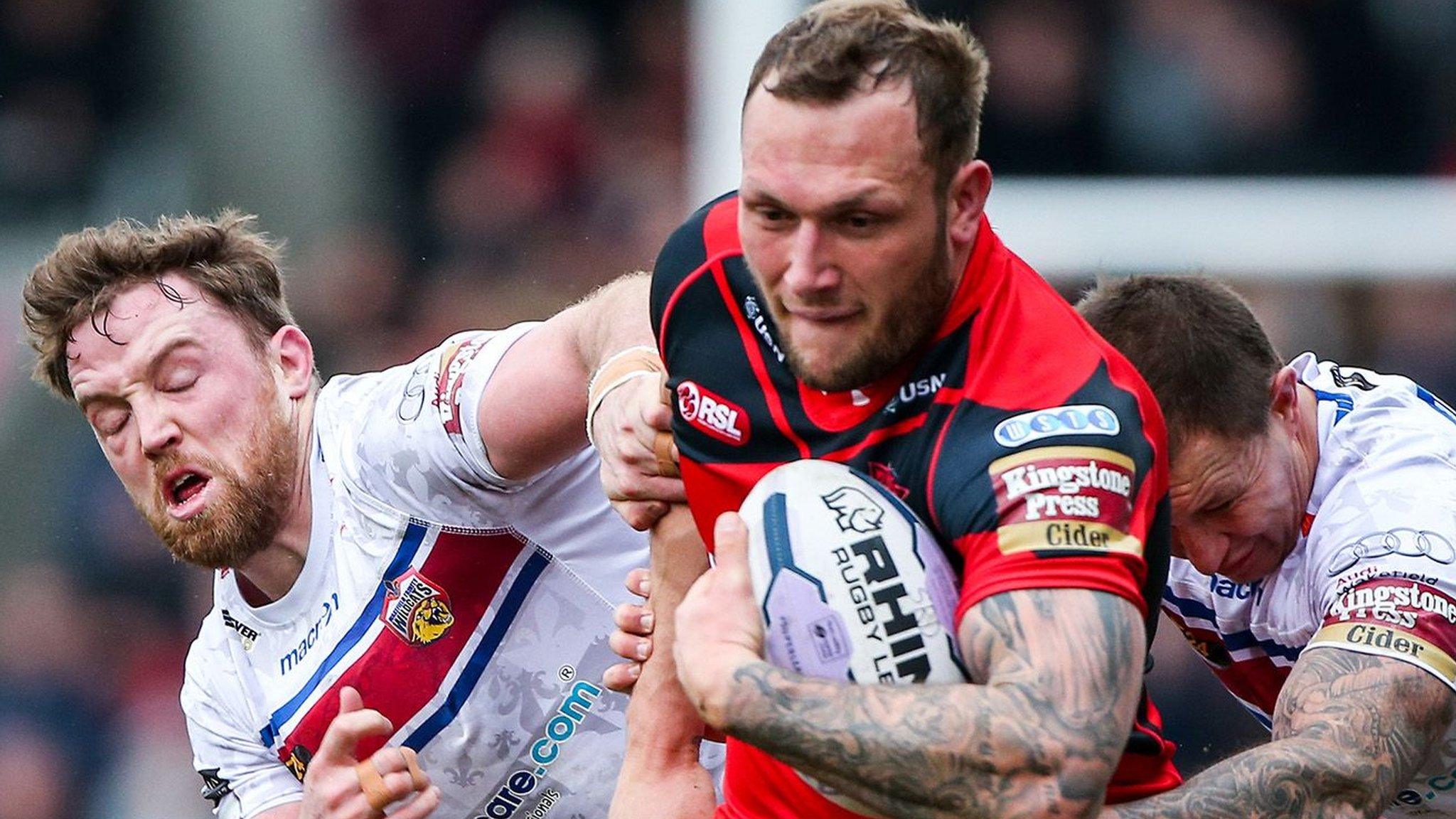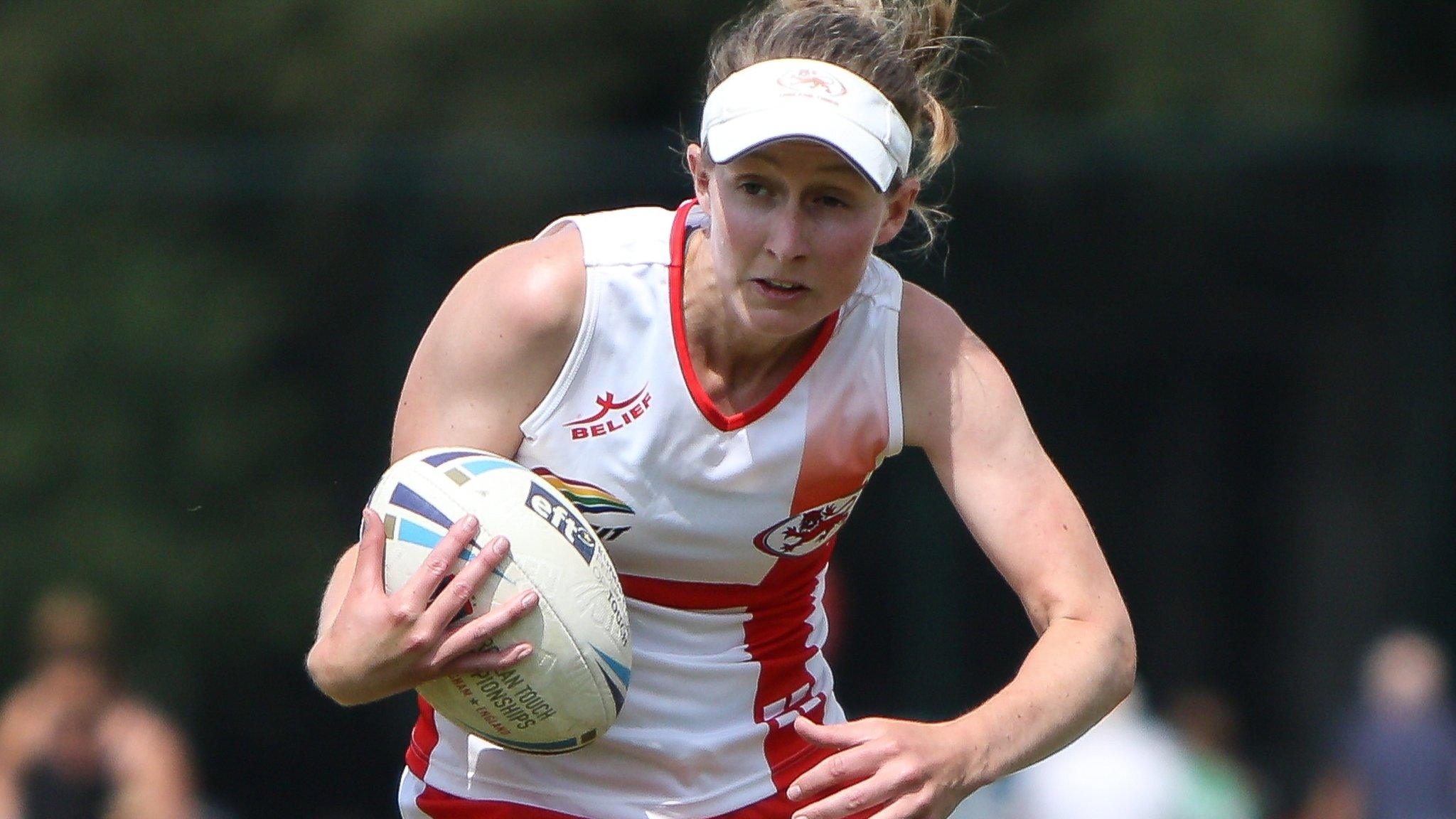RFL rule changes: Medical staff to have radio access from 2016
- Published

Former Leeds prop Jamie Peacock received concussion treatment and assessment, where teams are given a free interchange
Doctors and medical staff can use radio equipment from 2016 to improve quality of care for potentially injured players under new rugby league rule changes.
Mid-game concussion assessments and the need to react promptly to serious incidents has led to the decision.
Referees will also have powers to halt play if they have concussion concerns.
Teams already have a "free" temporary interchange of players which is not counted in their allocation if the player is then fit to return.
The Rugby Football League has also reduced video referee appointments to one per game.
Also included in the four new rule changes rolled out by the RFL is a clarification of the eight-point try law, which will now see the additional penalty kick goal awarded only for an challenge on a player "in the act of scoring a try".
Off-the-ball tackles on dummy runners or players not involved with play can still be dealt with by a referee but do not come under the eight-point try law.
Different frequency
The concern behind allowing medical staff to keep radio contact with physios on the field is the desire to avoid footballing messages being passed onto players.
To combat this, the equipment must operate on a different frequency not accessible to coaching staff, kit must be checked by match commissioners and the units must be marked with green tape.
Experimental rules
These rules will be implemented at reserve-grade level to test their relevance and suitability in professional rugby league:
Referees will stop the clock when one team is ready and formed in a scrum and the opposition team are not - so long as the players hold their positions.
Officials will also be able to implement a rule which was popular in the Australian National Rugby League, which allows players to tap from a 40/20 kick, thus speeding up the game and avoiding time-consuming scrums.
Attacking teams can also remove a player from the scrum to give extra depth to a back-line.
More on concussion in sport: |
|---|
- Published8 February 2016

- Published29 January 2016

- Published29 January 2016

- Published25 March 2017

- Published21 May 2019
